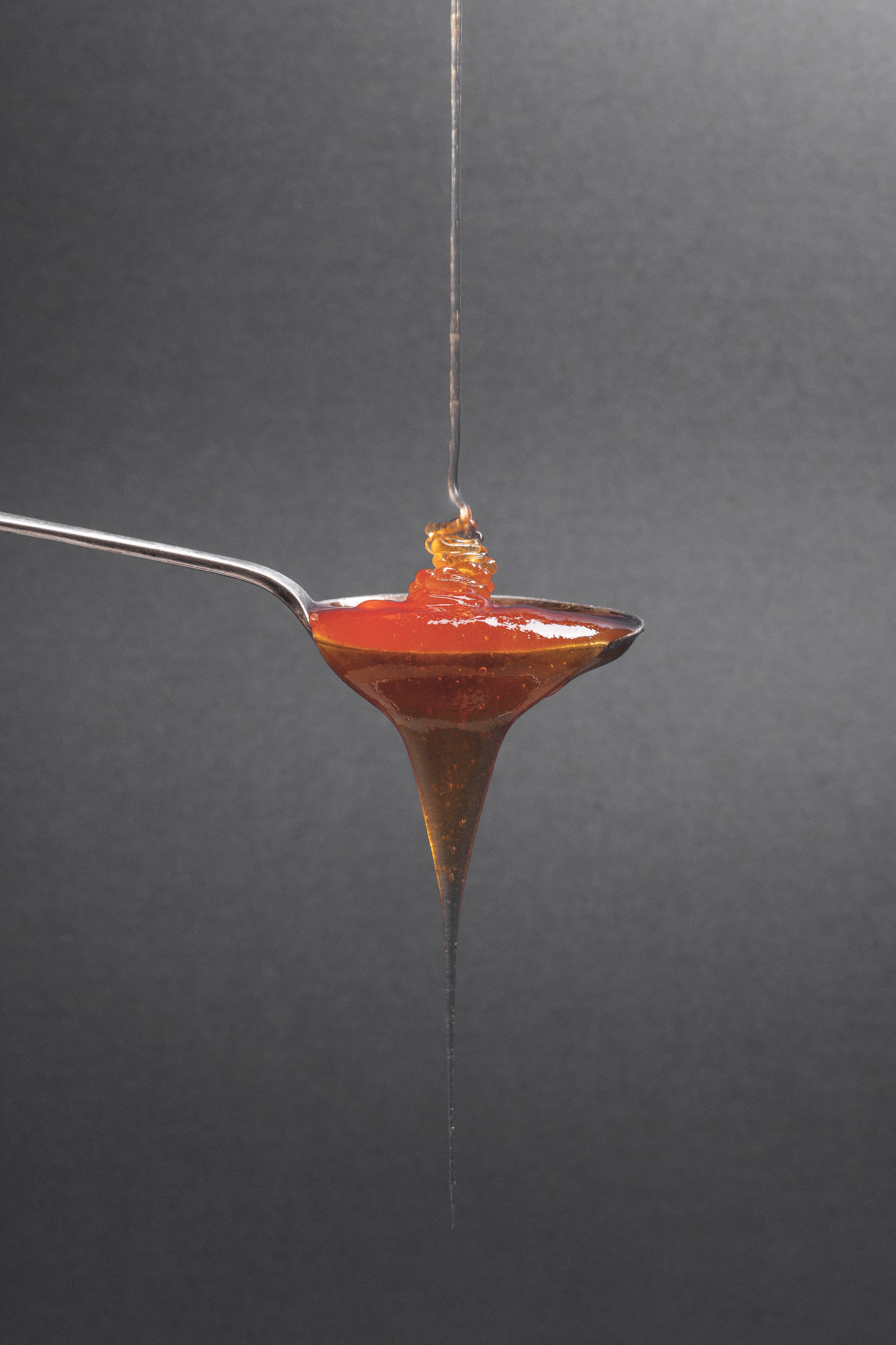
Discover Mānuka Honey
First off, Mānuka honey isn’t just your regular, run-of-the-mill honey. This golden goodness comes with some serious superpowers. Wondering what makes it so special? Well, it’s all about that magical MGO (Methylglyoxal) compound. This little secret ingredient gives Mānuka honey its antibacterial boost, making it the perfect remedy for everything from soothing sore throats to taming irritated skin. Talk about a double whammy of awesome!
The importance of honey for medicinal purposes is well documented in some of the world's oldest literature. Honey is well known and studied for its antimicrobial properties, and it’s well recognised that Mānuka Honey has the highest levels of non-peroxide activity and is therefore the best honey for antibacterial applications. The antibacterial potency of Mānuka honey was found to be related to the methylglyoxal (MGO) level, which has many benefits, including:
1. Immune system support: The antioxidants present in Mānuka honey can help support the immune system by reducing oxidative stress and inflammation in the body. This may contribute to better overall health and a strengthened immune response.
2. Cough and cold relief: Mānuka honey has been praised for its soothing effect on coughs and sore throats. It can provide temporary relief by coating the throat and reducing irritation.
3. Digestive health: Mānuka honey may have a positive impact on digestive health by soothing the digestive tract and relieving symptoms of conditions like acid reflux, gastritis, and inflammatory bowel disease. It can help reduce inflammation and support the growth of beneficial gut bacteria.
4. Antibacterial and wound healing properties: Mānuka honey has been traditionally used to treat wounds and infections. It contains a natural compound called methylglyoxal (MGO) that has potent antibacterial properties, helping to inhibit the growth of harmful bacteria and support wound healing.
5. Skin health: Many people use Mānuka honey as part of their skincare routine due to its potential benefits for the skin. It can help moisturize, soothe, and promote healing in various skin conditions such as eczema, psoriasis, and acne.
It's important to note that while Mānuka honey offers potential health benefits, it should not be used as a replacement for medical treatment. If you have specific health concerns, it's always best to consult with a healthcare professional for personalized advice.





